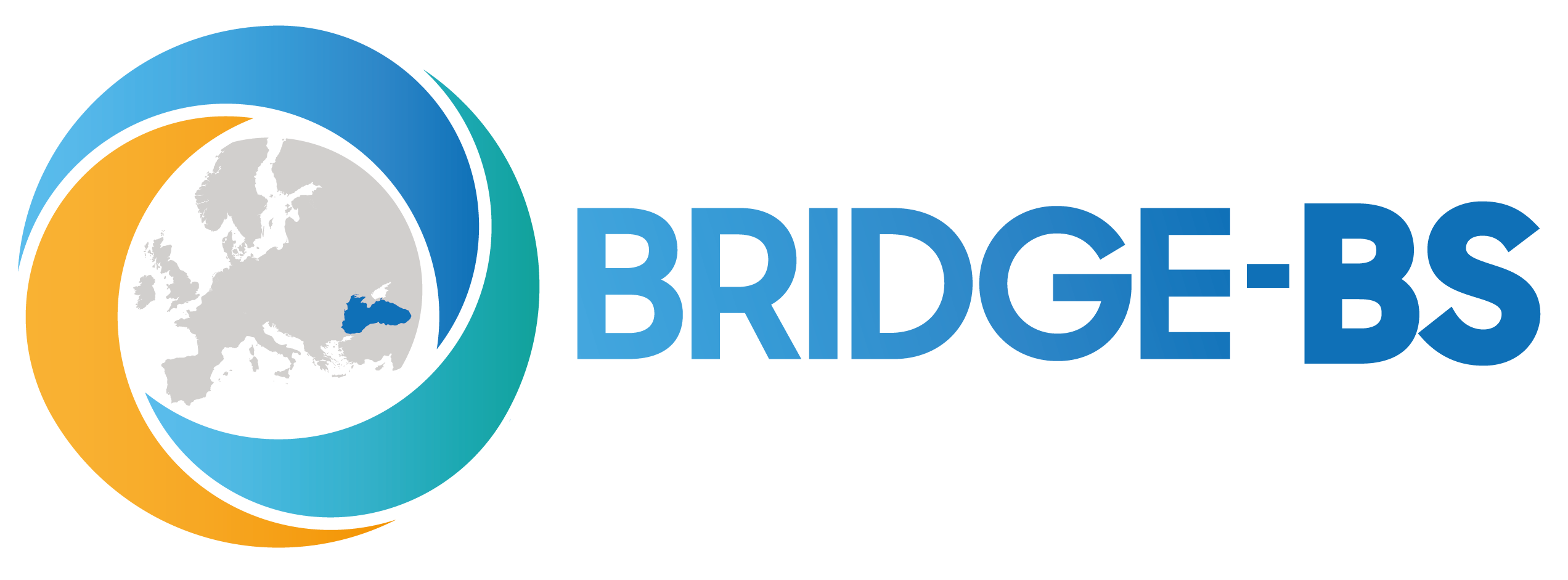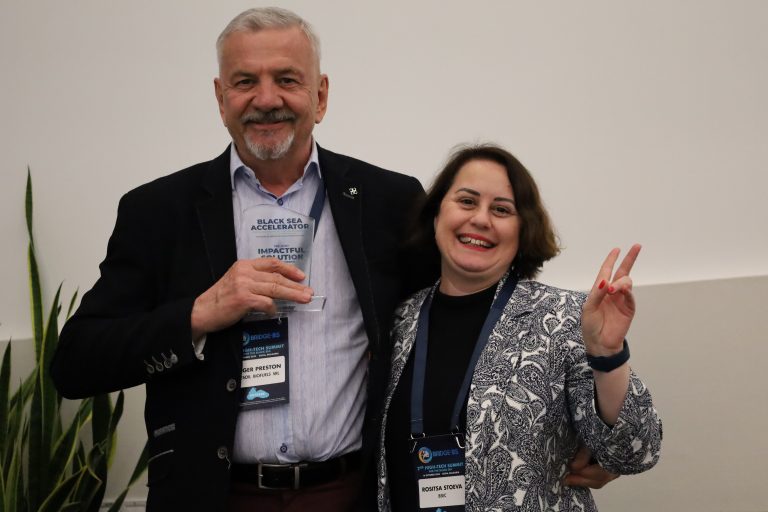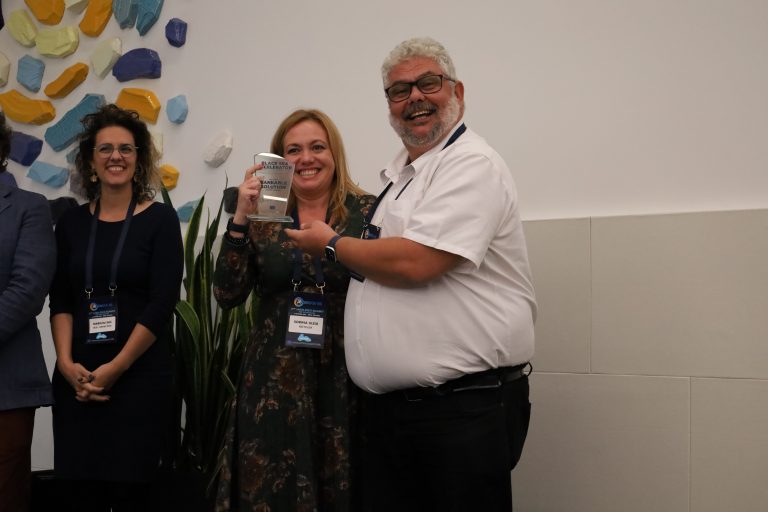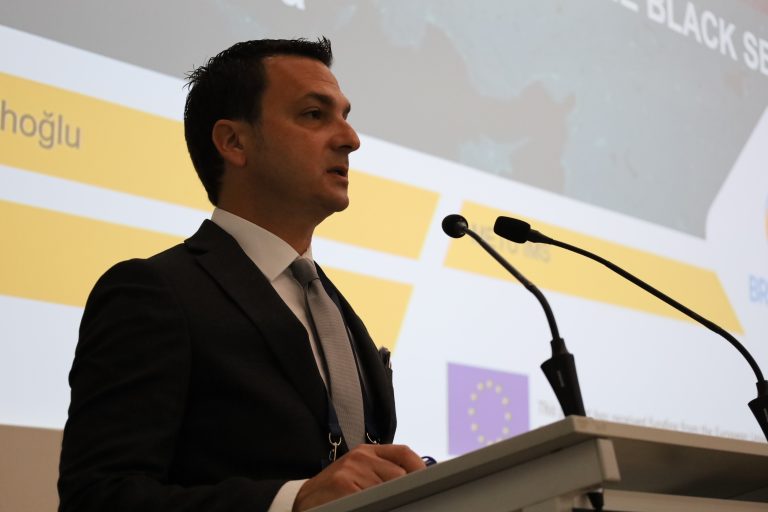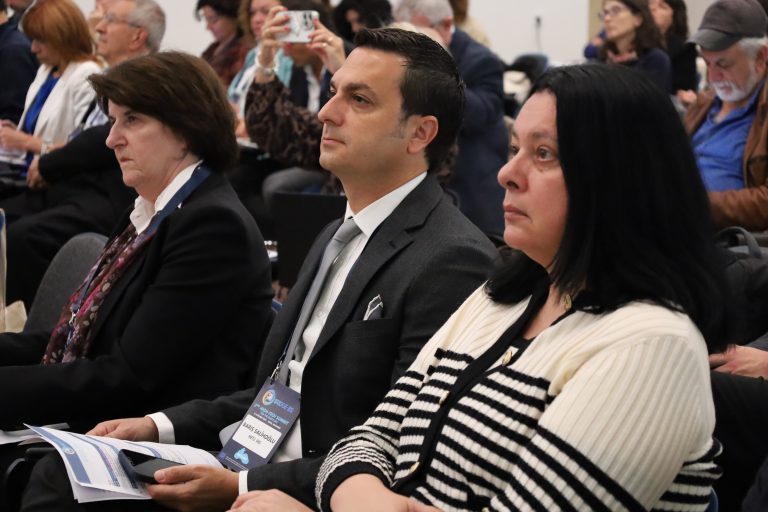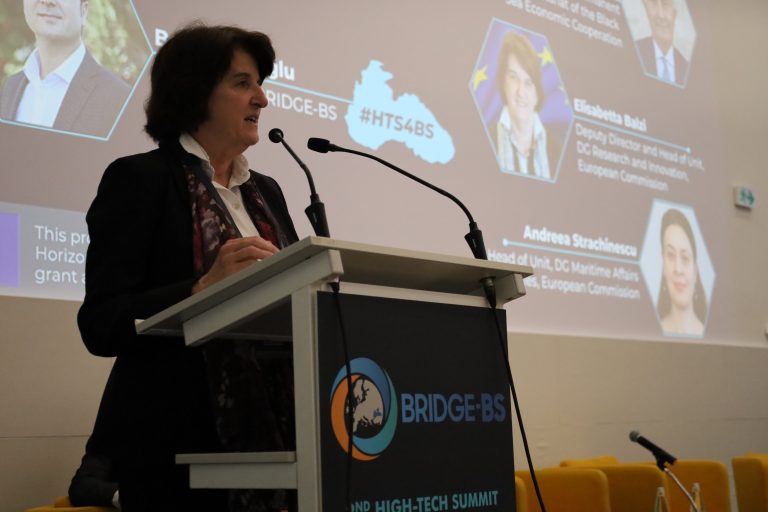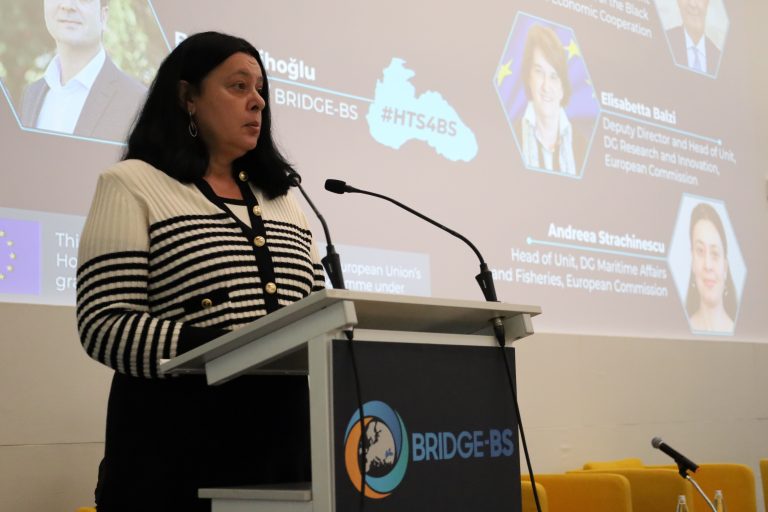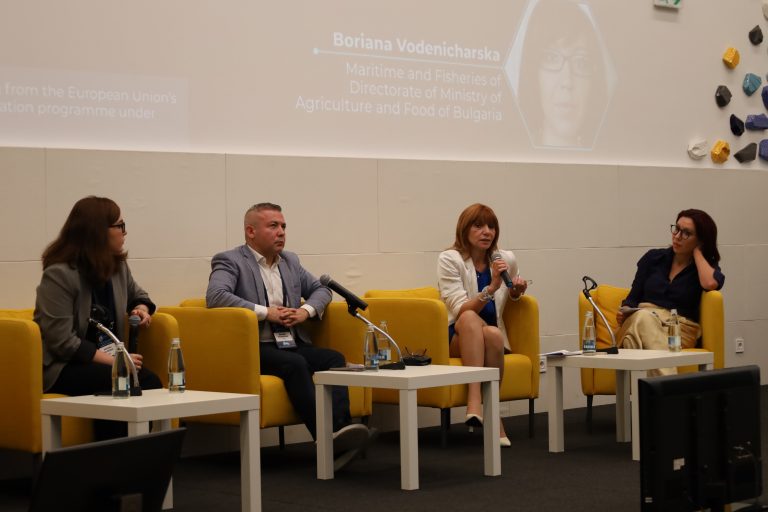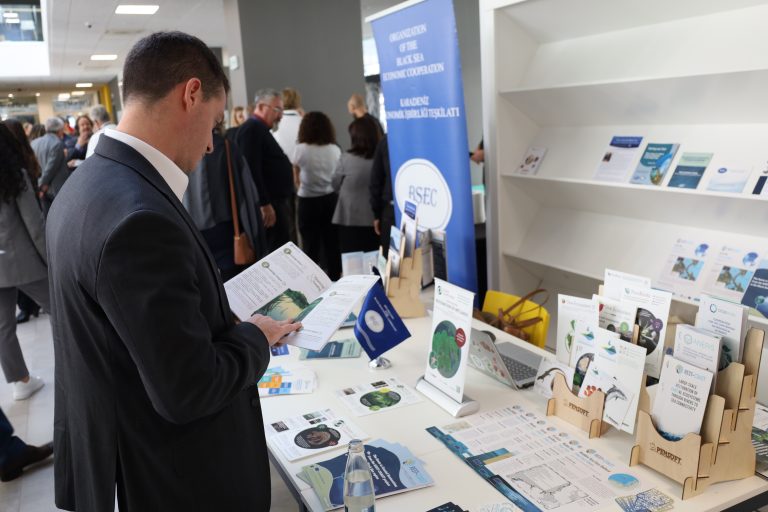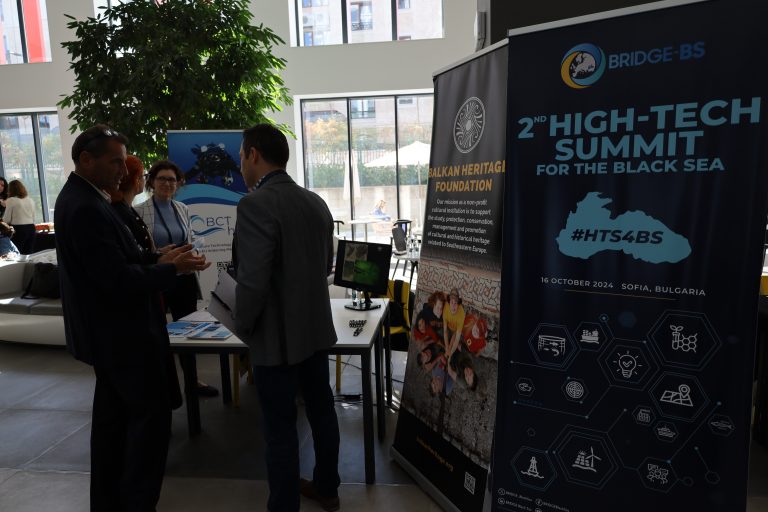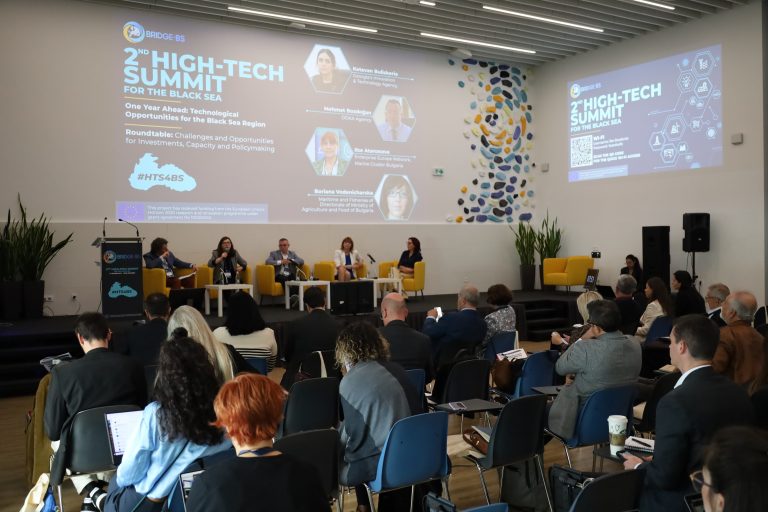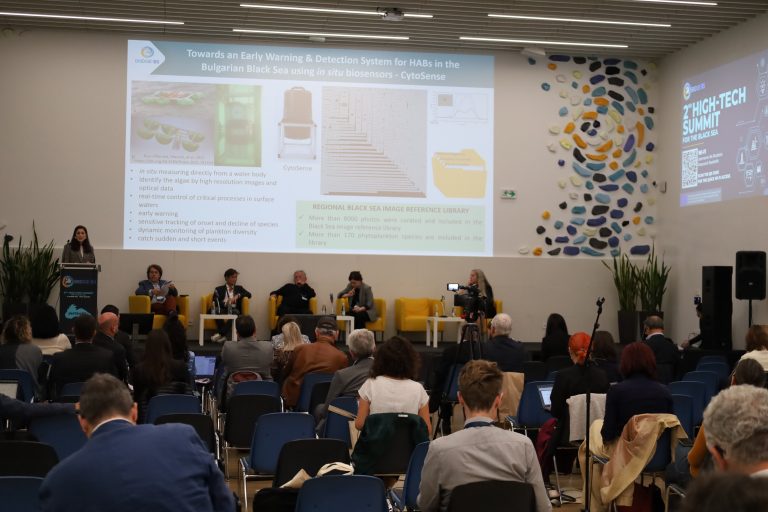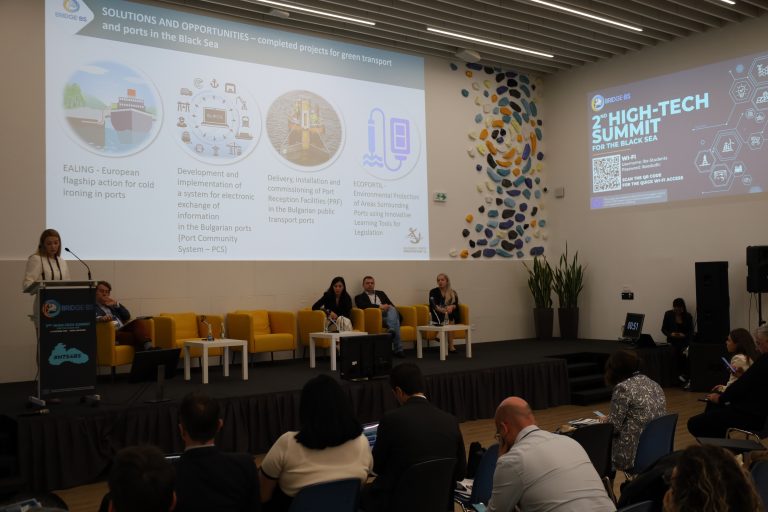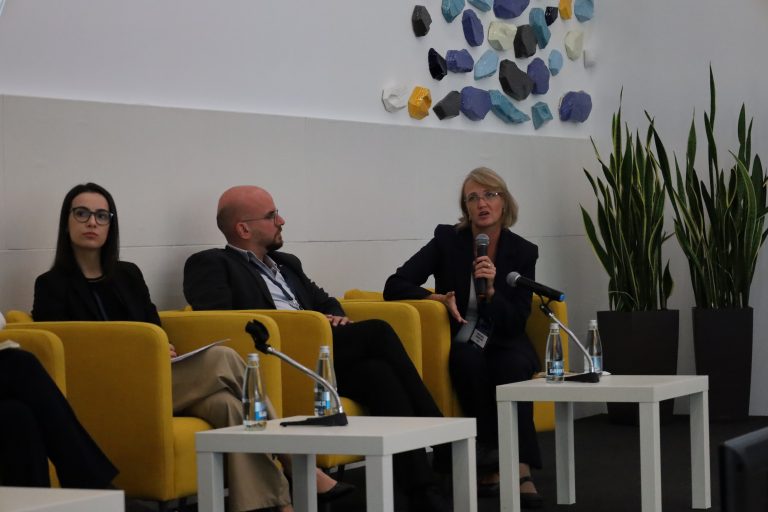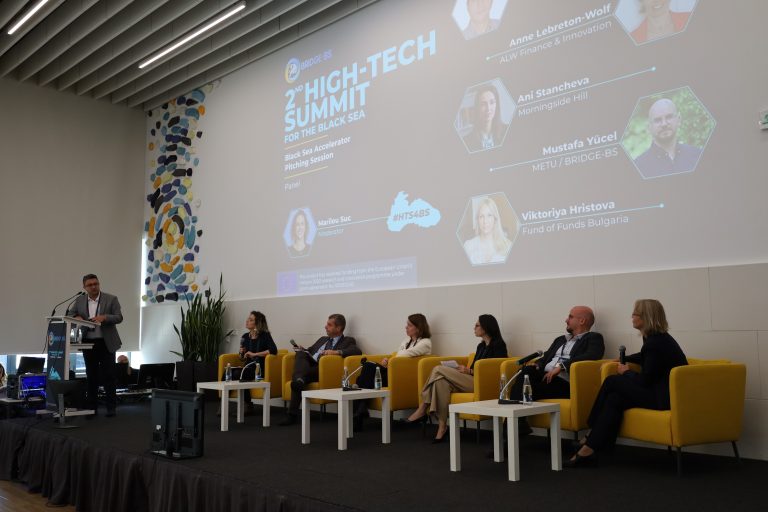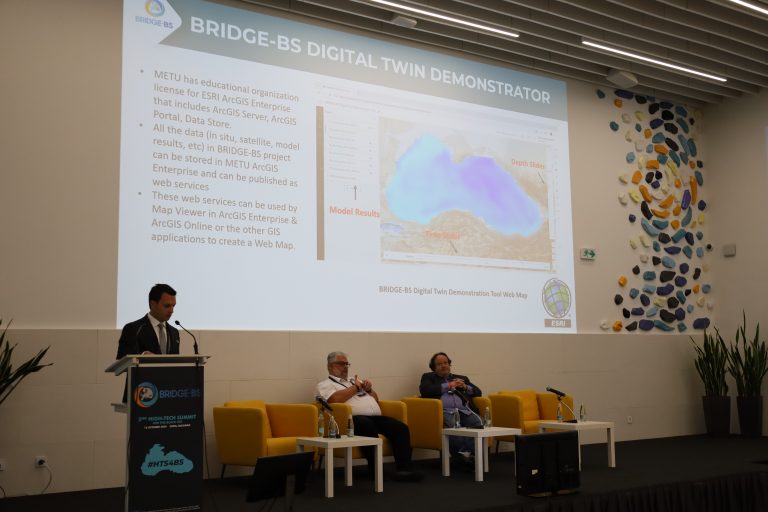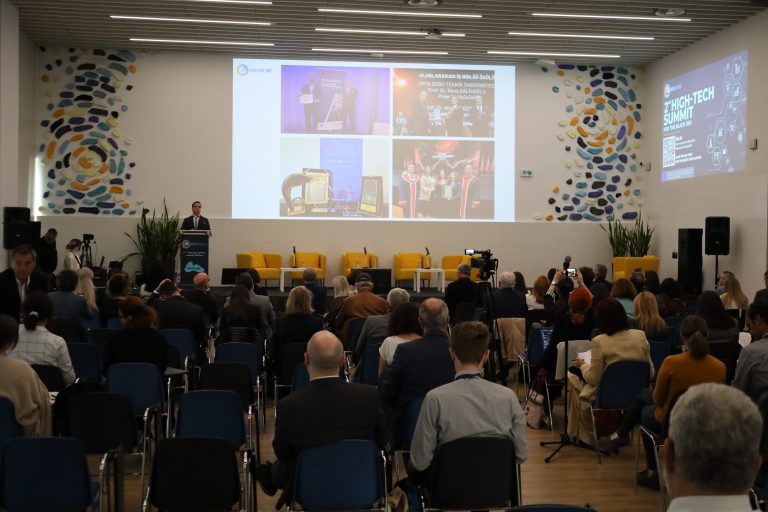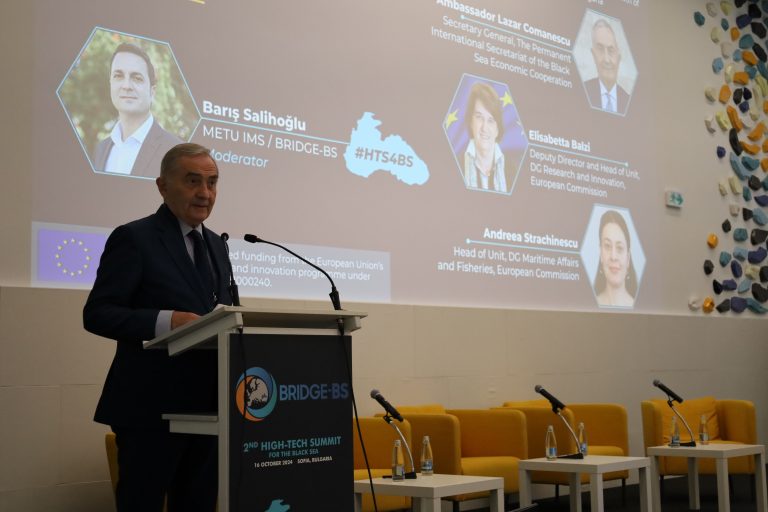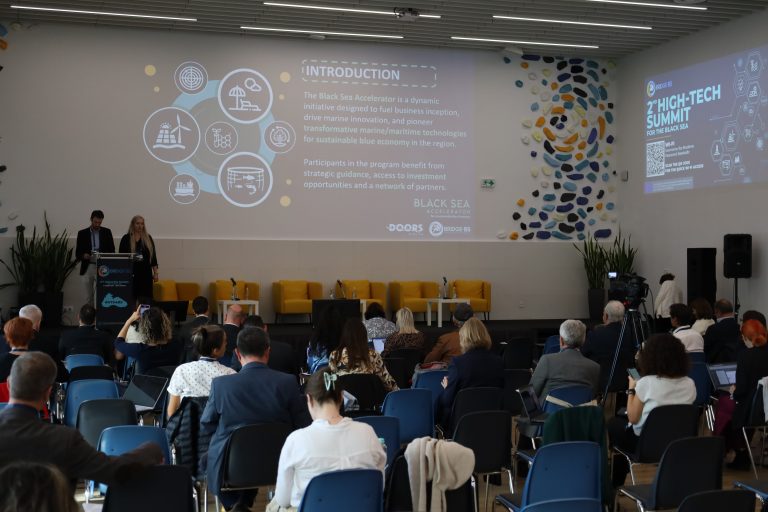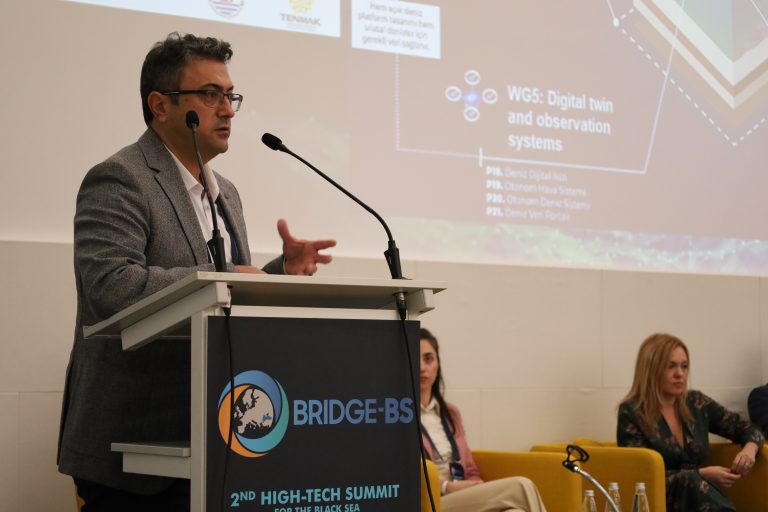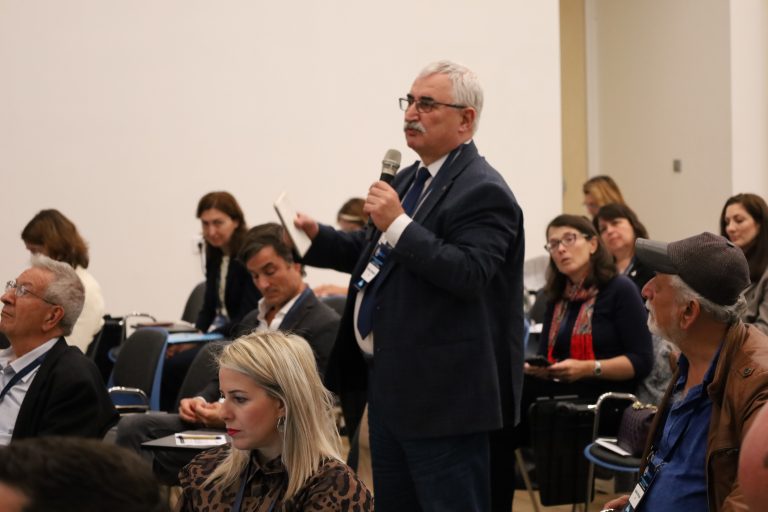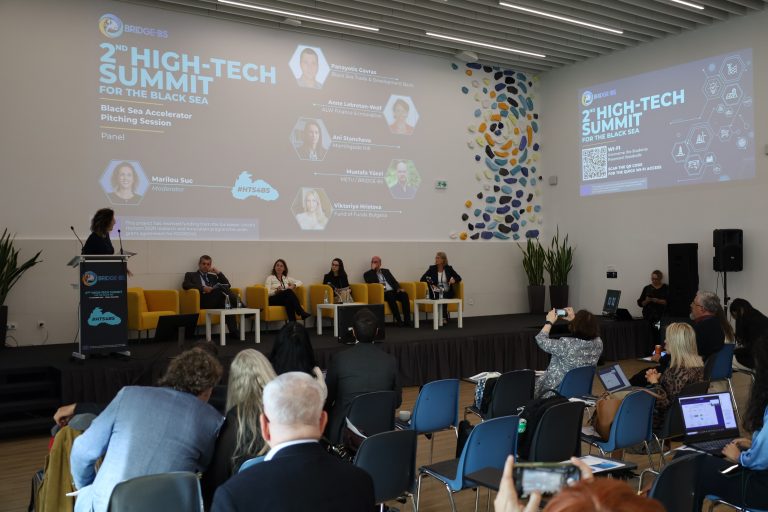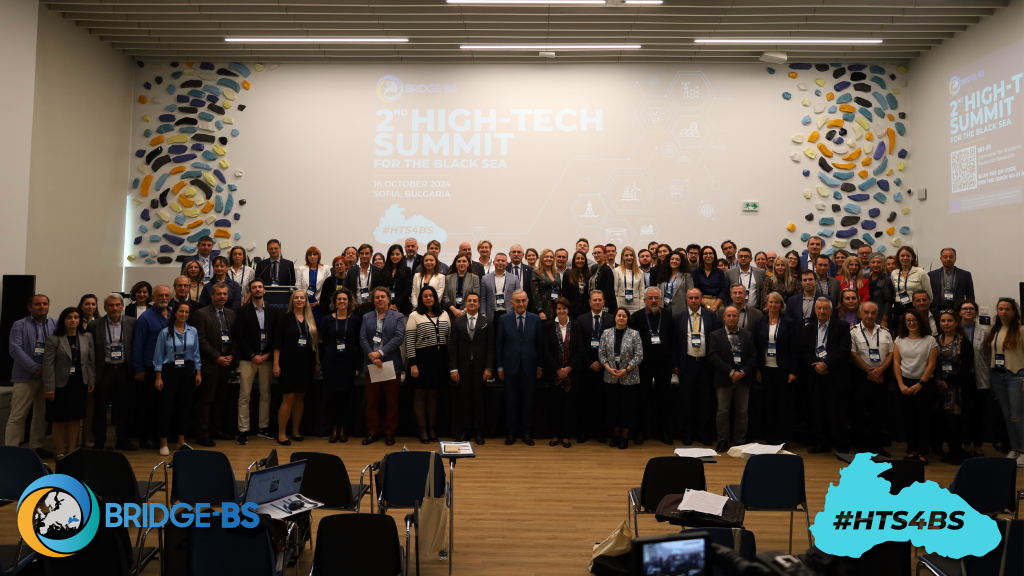
Press Release on the 2nd High-Tech Summit for the Black Sea!
The EU H2020-funded BRIDGE-BS project successfully held the 2nd High-Tech Summit for the Black Sea (HTS4BS) in Sofia, Bulgaria, gathering over 100 attendees both onsite and online (with 100 attending on-site). Experts from various sectors; scientists, researchers, entrepreneurs, and business leaders convened at this significant research-based forum focused on ocean digitalization and Industry 4.0 to discuss innovative, sustainable technologies for the development of the Blue Economy in the Black Sea and beyond.
The event was organized in synergy with EU Mission Ocean & Waters event From the Danube source to Black Sea – Healthy Waters and healthy life that took place on 15 October 2024 in Burgas and with Sustainable Blue Economy Partnership’s Black Sea Regional Workshop that took place in Sofia on 17 October 2024.
The 2nd HTS4BS, built on BRIDGE-BS’s early achievements and insights from Living Labs, featured business ideas supported by the Black Sea Accelerator with fruitful discussions covering a wide range of topics such as renewable maritime energy, sustainable aquaculture, blue biotech, green and digital ports, circular economy, environmental monitoring and digital twins of oceans. BRIDGE-BS Project Coordinator Barış Salihoğlu kicked off the event, highlighting the importance of the week with the EU Mission Ocean & Waters event on the healthy waters and healthy life from the Danube Source to the Black Sea, and Sustainable Blue Economy Partnership’s workshop on the Blue Economy for a Sustainable Black Sea, all focused on advancing innovative and sustainable solutions for the Black Sea. Ambassador Lazar Comanescu, Secretary General of the Black Sea Economic Cooperation (BSEC), followed with remarks on the need for long-term solutions to address the Black Sea’s environmental and economic challenges, citing BRIDGE-BS as a model for sustainable Blue Economy progress.
The event continued with the European Commission high-level officials, Elizabetta Balzi, Deputy Director and Head of Unit, DG Research and Innovation, and Andreea Strachinescu, Head of Unit, DG Maritime Affairs and Fisheries, who highlighted opportunities under Horizon Europe and EU Missions, including the Digital Twin Ocean, where BRIDGE-BS plays a pivotal role.
Key Discussions and Outcomes:
Technological Opportunities for the Black Sea: In the first session, BRIDGE-BS Researchers Pierre-Mael Deffontaines from Stratégies Mer et Littoral, Andrea Barbanti from The Marine Sciences Research Institute of the Italian National Research Council, and Alice Guittard, Athens University of Economics and Business presented scenarios and pathways for a sustainable blue economy In the Black Sea which are unique BRIDGE-BS outcomes. Furthermore, a roundtable discussion with the local clusters and funding agencies based on the scenarios and pathways focused on how local actors are prepared to address such future challenges and opportunities in terms of investment, capacity building, and cross-border collaboration
Innovative Solutions: The second session gathered the sectoral representatives to share their cutting-edge solutions in waste-to-energy, offshore wind potential, aquaculture advancements, biotechnology, smart port innovations, and sustainable maritime transport. Real-world examples of best practices were showcased, inspiring future ideas and collaborations in the fields of Blue Economy sectors.
Black Sea Accelerator Pitch Session: The introductory presentations by Ipek Hokkaci from the Black Sea Economic Cooperation and Pierre-Maël Deffontaines from Stratégies Mer et Littoral highlighted the sustainable blue economy potential in the Black Sea and the success of the two calls from the Black Sea Accelerator program, facilitated by the BRIDGE-BS and DOORS projects. Additionally, three Black Sea Accelerator applicants; Kubilay Yıldırım (HydrocollacoidBS), Roger Preston (Tresoil), and Sorina Uleia (Recycllux) pitched their projects to a panel of experts, who evaluated them on sectoral, sustainability, financial, innovative, and scientific aspects. The pitchers and other BSA applicants were assessed in two categories by both the panelists and the audience, with awards presented at the end of the event. Recycllux received the “Most Bankable Solution” award for its marine plastic management project, while Tresoil was awarded “Most Impactful Solution” for its innovative waste-to-energy idea.
Digital Twins, Automation, and Circular Models: State of play of the transversal actions to implement the topics in the Black Sea and beyond in order to support a sustainable Blue Economy with a focus on innovation as a relay for action were discussed. Patrizio Mariani from Technical University of Denmark introduced the topics and invited Frederic Leclercq from VLIZ to explain the latest advancements in the EU’s Digital Twin Ocean, a novel ocean data architecture, and Adrian Stanica from GeoEcoMar presented the ‘System of Systems’ platform from the DOORS project. Barış Salihoğlu as the BRIDGE-BS Coordinator also introduced the BRIDGE Black Sea Digital Twin Ocean Demonstrator, showcasing its contribution to the EU’s Digital Twin Ocean effort. Antonio Vicente Amendola from Shelley AI further discussed the role of AI in sustainability and blue economy.
The key takeaway from the 2nd HTS4BS was the critical importance of investment, capacity building, and cross-border cooperation in advancing a sustainable blue economy in the region. Notably, the presentations and discussions showed us the Black Sea’s strong potential for blue economy development and regional collaboration, which are being increasingly enhanced by innovative marine research technologies.
The EU Mission Restore our Ocean and Waters event, held before the 2nd HTS4BS, and the SBEP workshop that followed further supported and reinforced the discussions, once again emphasizing the importance of joint efforts across regions.
